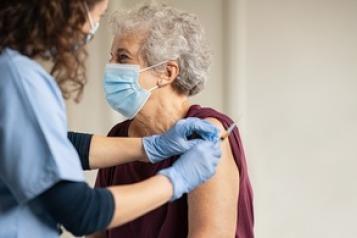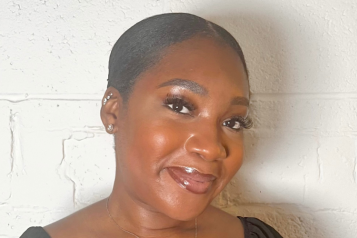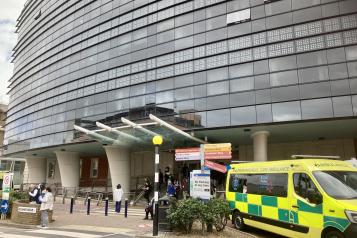Survey results show high levels of concern about COVID-19 remain among health service users

The survey was designed and led by Ipsos MORI for the Joint Programme for Patient, Carer and Public Involvement in COVID Recovery, a collaboration between Guy's and St Thomas' NHS Foundation Trust - including Evelina London Children's Hospital and Royal Brompton and Harefield hospitals – and King's College Hospital NHS Foundation Trust.
The survey is the first of the programme’s patient-public projects to report its findings.
The research involved conducting a telephone survey of 1,500 participants from across the programme partners. The survey captured information about patients’ and carers’ behaviours and attitudes to meaningfully inform how services continue to be designed, improved and delivered during COVID-19 waves, recovery and beyond. The survey covered:
- General feelings about the virus and perceived levels of risk
- Experience of accessing existing care for current needs (questions for current service users/ those with regular care needs)
- Use of services for existing care needs (e.g. GP, community services, outpatients, elective care, urgent and emergency care)
- Accessing care and services for new or future needs – including community, outpatient, elective, urgent and emergency
- Adapting to service changes driven by the pandemic, over the short, medium to long-term (e.g. virtual appointments).
Key findings and implications
Concerns about coronavirus
There remain high levels of concern about coronavirus – these worries continue to affect how people feel about using health services. These concerns are evident throughout the results and demonstrate the need to continue to reassure patients, carers and visitors:
Experiences of using hospital services face-to-face during the pandemic were largely positive – the majority (91%) said they felt comfortable using these services.
• Parents and carers, responding on behalf of a child or adult, were less positive (84% and 78% respectively), reflecting higher levels of concern amongst people with caring responsibilities.
• The small group who said they felt uncomfortable using a health service face-to-face (7% of those that used them) tended to say they felt this way because they were worried about catching coronavirus.
• Although only a small proportion (less than 5%), some participants chose to stay away from services during the pandemic because they were worried about catching coronavirus.
• The majority of participants say they would feel comfortable using most services if they needed to in the future.
• Of those who said they would be uncomfortable using a hospital service face-to-face (37%), the most common reason for feeling concerned relates to the perceived risk of catching coronavirus (mentioned by 54% of this group).
• On the whole, participants find the prospect of staying as an inpatient as the most worrisome (20% would feel uncomfortable).
There are implications arising from these continued high levels of concern:
• Communications ought to provide reassurance about the level of risk and measures that are in place to keep patients, carers and visitors safe when attending a health service. Findings also suggest a need for staff to be understanding and compassionate, even more so than in usual circumstances.
• However, there is a small group of very concerned people who say that nothing could make them feel comfortable about using a face-to-face service. While virtual alternatives are a useful solution in some cases (see next slide), some patients or carers may choose not to access services when they need to. The programme may wish to consider how to engage with this group to understand whether they will stay away from services in the longer term.
More about the joint programme
The Joint Programme for Patient, Carer and Public Involvement in COVID Recovery is a collaboration between Guy's and St Thomas' NHS Foundation Trust - including Evelina London Children's Hospital and Royal Brompton and Harefield hospitals - and King's College Hospital NHS Foundation Trust.
The two-year programme, generously funded by the Guys’ and St Thomas’ Charity and supported by King’s College Hospital Charity, aims to ensure the views of patients, carers and the public inform a number of the ongoing service changes that continue to develop in response to the COVID-19 pandemic.
For more information about the Joint Programme visit the Guy's and St. Thomas' website.
For more infomation about the survey, including the executive report, visit the Ipsos MORI website


